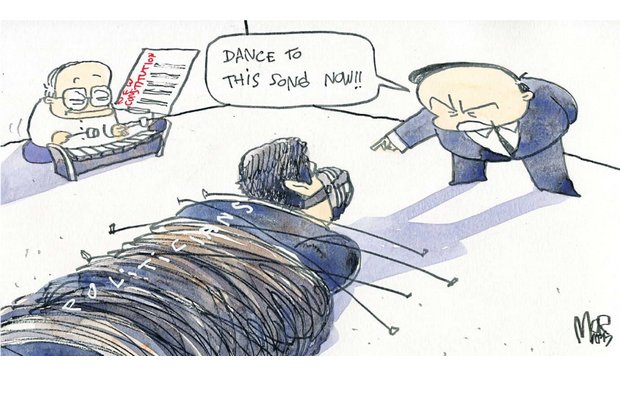
Praising oneself while discrediting others is a classic campaign tactic employed by most politicians ahead of general elections. Prime Minister Prayut Chan-o-cha seemed to be doing just that, behaving like a career politician, when he posed six much-criticised questions to the Thai public on Wednesday.
He questioned the capability and credentials of the established political parties while reminding people what his regime has done in the past few years. His questions are also seen as an attempt to test the waters before deciding or revealing whether he will enter politics.

As head of the National Council for Peace and Order (NCPO), which has set new rules on politics and has kept a firm grip on all state power, Gen Prayut must stop making the public play a guessing game about the political ambitions of himself and his NCPO colleagues. He must be clear about whether entering politics is part of his plan.
Even though he and those NCPO members who did not quit their jobs within 90 days of the new constitution coming into effect are not allowed to compete in the upcoming election as MP candidates, there are still channels for them to rise to power based on the rules they set. The charter allows any political party winning at least 25 MP seats to nominate three prime ministerial candidates for the Lower House to vote on and they are not required to be party members.
If Gen Prayut believes the established parties are poor choices for Thais and there is a need for new blood in Thailand's political landscape as he implied in the questions, he and the NCPO can set up a party to compete in the poll. This would give him a chance to get real answers to his questions.
If voters are convinced the NCPO has done a great administrative job, they will surely give his party more than 25 MP seats, making it possible for it to nominate him as premier.
On the other hand, Gen Prayut can still get other parties to nominate him without the need for him to set up a regime party. In that case, he would have to become allies with them, and join the ranks of the political class he has been discrediting.
Whatever plan he may be secretly hatching, it is illegitimate as long as he continues to be the rule-maker. He should quit the top job if he plans to compete in the election, for the sake of fair play. At present, he still bans all parties from holding activities, putting them at a disadvantage. His regime's suppression of campaigning during the last charter referendum reminds many they can expect a similar climate ahead of the next election as long as the NCPO is in charge.
Gen Prayut's new questions also remind the public of the four questions he posed in May. They show that his aspirations to enter politics may not have dissipated.
In fact, the regime's desire to cling on to the power it seized from the last elected government is demonstrated by certain rules specified in the constitution it sponsored. The NCPO is allowed to pick all 250 senators who will gain a five-year term. An outsider can also become prime minister if there is a Lower House vote deadlock.
The prospect of Gen Prayut as premier running the administrative branch for another four-year term while having the Senate, as a supposed checks-and-balance mechanism, on his side, is not a good thing for a democratic country.
But if it has to be one of the political possibilities that Thais will be forced to choose from, Gen Prayut must come clean about it now.
